If you own a pet sulcata tortoise, providing them with a proper diet is crucial for their health and well-being. Ensuring they receive the right nutrients is essential for their growth and overall contentment in your home. If you’re seeking guidance on what to feed your sulcata tortoise, you’re in the right place. At Kapidolo Farms, we’re here to shed light on the ideal diet for these fascinating creatures.
A common misconception is that a diet solely comprising green leafy vegetables suffices for a sulcata tortoise. However, for optimal health and to mitigate potential medical issues, it’s imperative to offer a diverse and balanced diet. Their nutritional needs encompass a range of vitamins, minerals, and other essential nutrients vital for their growth and well-being.
While many pet owners opt for foods like grass, weeds, flowers, cacti, succulents, and various vegetables, it’s crucial to be discerning. Not all items are suitable, and some can even be harmful if not chosen wisely.
For instance, be cautious when selecting vegetables from the grocery store, as many contain high water content unsuitable for desert tortoises like the sulcata. Always prioritize foods that align with their natural dietary requirements to ensure a long, healthy life for your pet.
What are the Common Dietary Problems of Sulcata Tortoises?
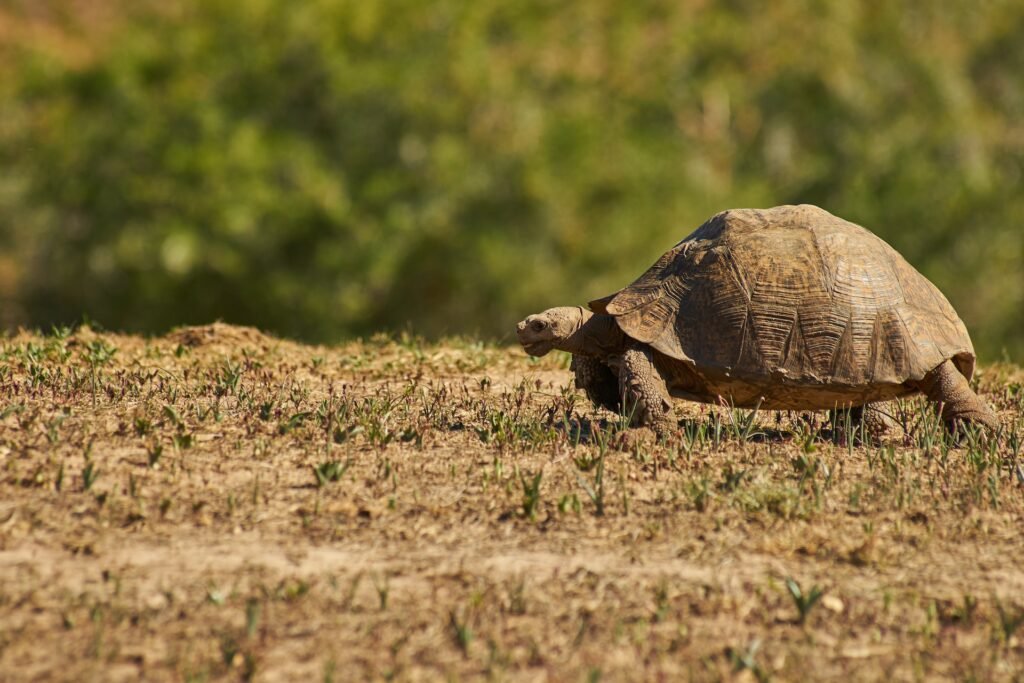
- Not feeding them foods rich in fiber.
- Feeding them foods with high protein content.
- Providing fruits and other foods with high sugar content.
- Not offering a balanced diet containing calcium and phosphorus.
- Overfeeding or giving excessive amounts of food.
When caring for a sulcata tortoise, it’s vital to recognize their natural habitat. These tortoises have evolved to thrive in semi-arid regions, predominantly consuming dry grasses and weeds. For optimal health, a sulcata tortoise requires a diet primarily based on high-fiber grasses.
Offering an improper diet can lead to rapid growth, resulting in shell deformities such as a pyramid-like shape or the development of bumps. Such conditions not only jeopardize their well-being but can also reduce their lifespan.
Interestingly, certain tortoise species, including sulcata tortoises, rely on beneficial gut bacteria to aid in digesting the grasses and weeds they consume. Introducing foods high in sugar, like fruits, can disrupt the natural pH balance of their digestive system.
This imbalance may eradicate essential gut bacteria, leading to the release of harmful toxins into their bloodstream. Such a condition can induce a form of Toxic Shock Syndrome, posing severe health risks, potentially proving fatal.
Grass and Hay
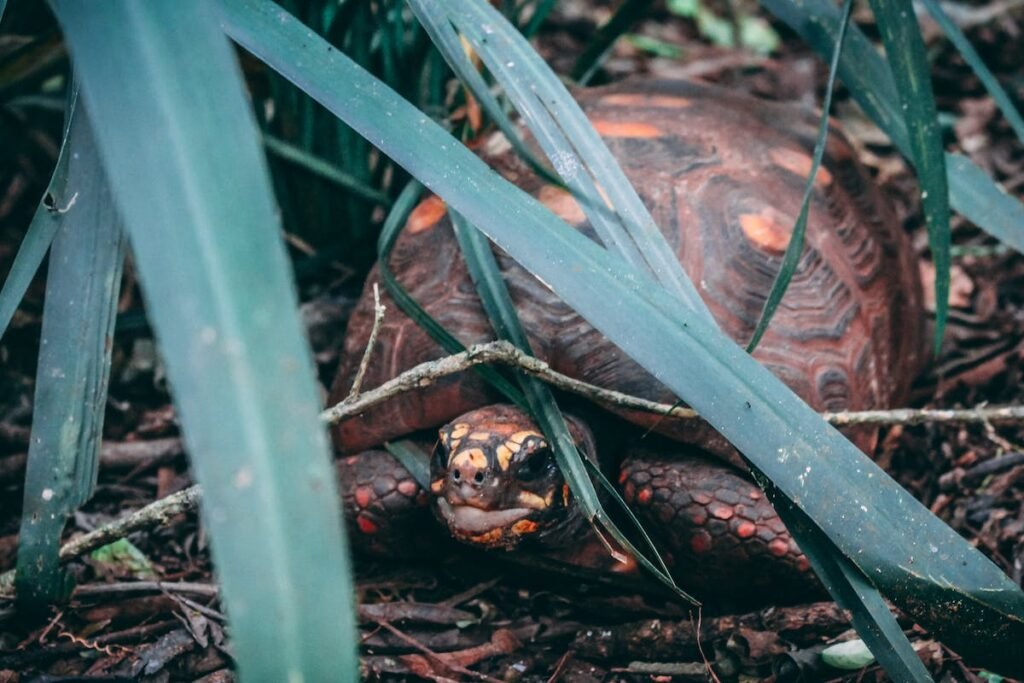
Sulcata tortoises require a diet rich in grass and hay for grazing. Their nutritional intake should include cheatgrass, clover, various grasses, grass cuttings, shrubs, and edible flowers like hibiscus and geraniums.
For optimal nutrition, consider feeding your tortoise grass hays such as meadow grass, oat hay, and orchard grass. Always inspect the hay for mold, as it can be detrimental to their health. Similarly, regularly check their bedding for any contaminants.
Green vegetables should comprise approximately 60% of their diet. Offer a variety of leafy greens like dandelion greens, kale, mustard, and turnip. However, steer clear of vegetables with high oxalate levels, such as beet greens, parsley, rhubarb, and spinach.
Additionally, incorporate other vegetables, making up about 20% of their vegetable intake. These can include broccoli, grated corn, raw carrots, romaine lettuce, pumpkin, sweet potatoes, and winter squash.
Fruits
While fruits can serve as occasional treats for your pet sulcata tortoise, they should not be a staple in their diet. Due to their high sugar and water content, fruits are not ideal for regular consumption by sulcata tortoises. However, as occasional treats, you can offer fruits like strawberries, bananas, cantaloupe, various berries, apples, pears, peaches, and pitless apricots.
Vitamins and Minerals

Calcium
Sulcata tortoises require calcium in their diet to ensure healthy growth and the development of sturdy bones and shells. While dandelion leaves and flowers are natural sources of calcium, you can also supplement their diet with items like cuttlefish.
Cuttlefish is particularly beneficial for maintaining the beak’s shape and preventing overgrowth. When adding calcium supplements, ensure they are free from phosphorus. Given that many foods in a tortoise’s diet naturally contain phosphorus, additional supplements are unnecessary.
Multivitamins can be administered to sulcata tortoises up to twice a week. Younger or baby sulcata tortoises may struggle with grass and hay due to their underdeveloped jaws, making chewing a challenge. Although tortoises lack traditional teeth, they use mouth ridges to process their food.
While sulcata tortoises are attracted to bright colors, it’s essential to be cautious. Incorporate brightly colored fruits and vegetables into their diet, but ensure that any inedible items with vibrant colors are kept away to prevent accidental ingestion.
Vitamin D
Sulcata tortoises require vitamin D to effectively absorb calcium. Incorporating vitamin D3 into their diet is essential. It’s beneficial to allow them outdoor exposure to sunlight. For those housed indoors, a UV lamp can be utilized to stimulate the production of vitamin D3, facilitating proper calcium absorption. Additionally, vitamin D3 supplements can be sprinkled over their food.
When selecting foods for your tortoise, be cautious of those high in oxalic acid compounds. Such foods can hinder calcium absorption in their digestive tract. Foods like broccoli, cauliflower, kale, mustard greens, and spinach are rich in oxalic acid and should be given sparingly. While these foods can be offered occasionally, they shouldn’t form a regular part of their diet, as sulcata tortoises can face health issues if fed inappropriate foods.
Overfeeding is a common error among tortoise owners. It’s crucial to recognize that tortoises have slower metabolisms compared to animals like dogs and cats. When determining feeding frequency, consider the tortoise’s activity level. Does it have space outdoors to roam daily, or does it predominantly lead an indoor, sedentary life? For less active tortoises, daily feeding may not be necessary.
Curious about the ideal diet for sulcata tortoises? If you’re seeking quality food and dietary guidance for your pet, consider Kapidolo Farms. We offer nationwide shipping across the USA. For more insights on tortoise diets or to procure premium dietary items, feel free to contact us at 215-483-7675 or via email at kapidolofarms@gmail.com. Choose Kapidolo Farms for trusted pet tortoise food, dietary products, and supplies. Don’t hesitate—reach out today!


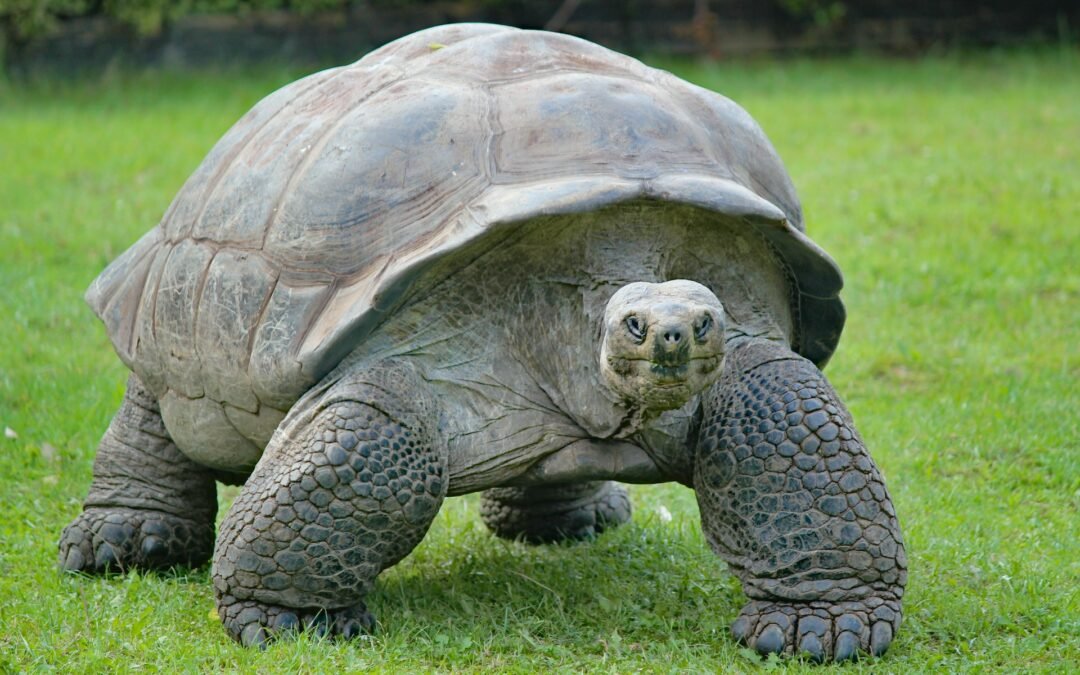
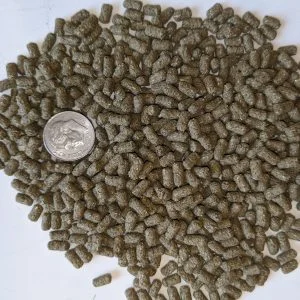
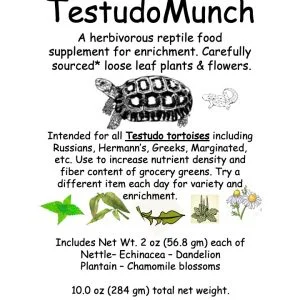
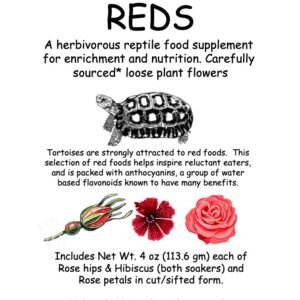
Can you feed them apples.
hello, high sugar content food are not recommended, it changes normal gut microbiome.
Can, but should not.
Just got a sulacta tortoises trying to find the rite food to feed
depending on the size you might consider ‘bigs’ or ‘littles’ variety packs.
Is there a brand of commercial food that you recommend
I carry a few brands to cover a range of needs. Overall the ZooMed diets are well regarded by veterinarians the focus on nutrition. For small individuals, the grassland crumbles might work better that the pellets, both are the same formula but different piece sizes. The Hikari mulberific delight many people use for fresh hatched tortoises as both the pellets and the pieces of stuff that make up the pellet are small. The Arcadia optimzed 52 I’ve had the least experience with, but many people swear by it. As a general salad food ingredient I use the chicken layer crumbles, they have a very high calcium content and D3 – enough to supoort a chicken laying and egg nearly everyday.
I love these tortoises! Best pet besides my dog, cat and bird. It took me awhile to get the right foods to Valentino ( I got him on a Valentine’s Day) but I’m still experimenting and.